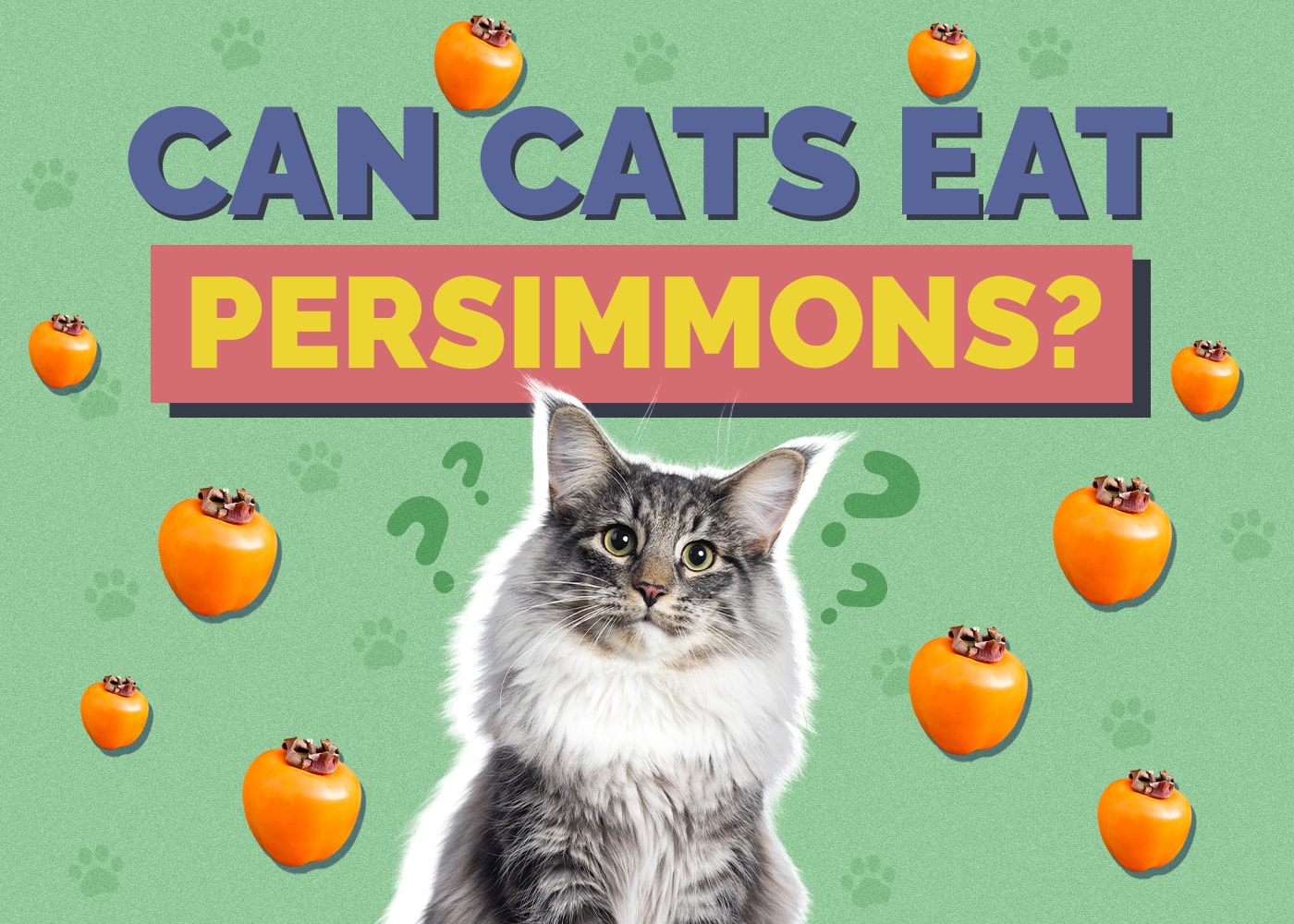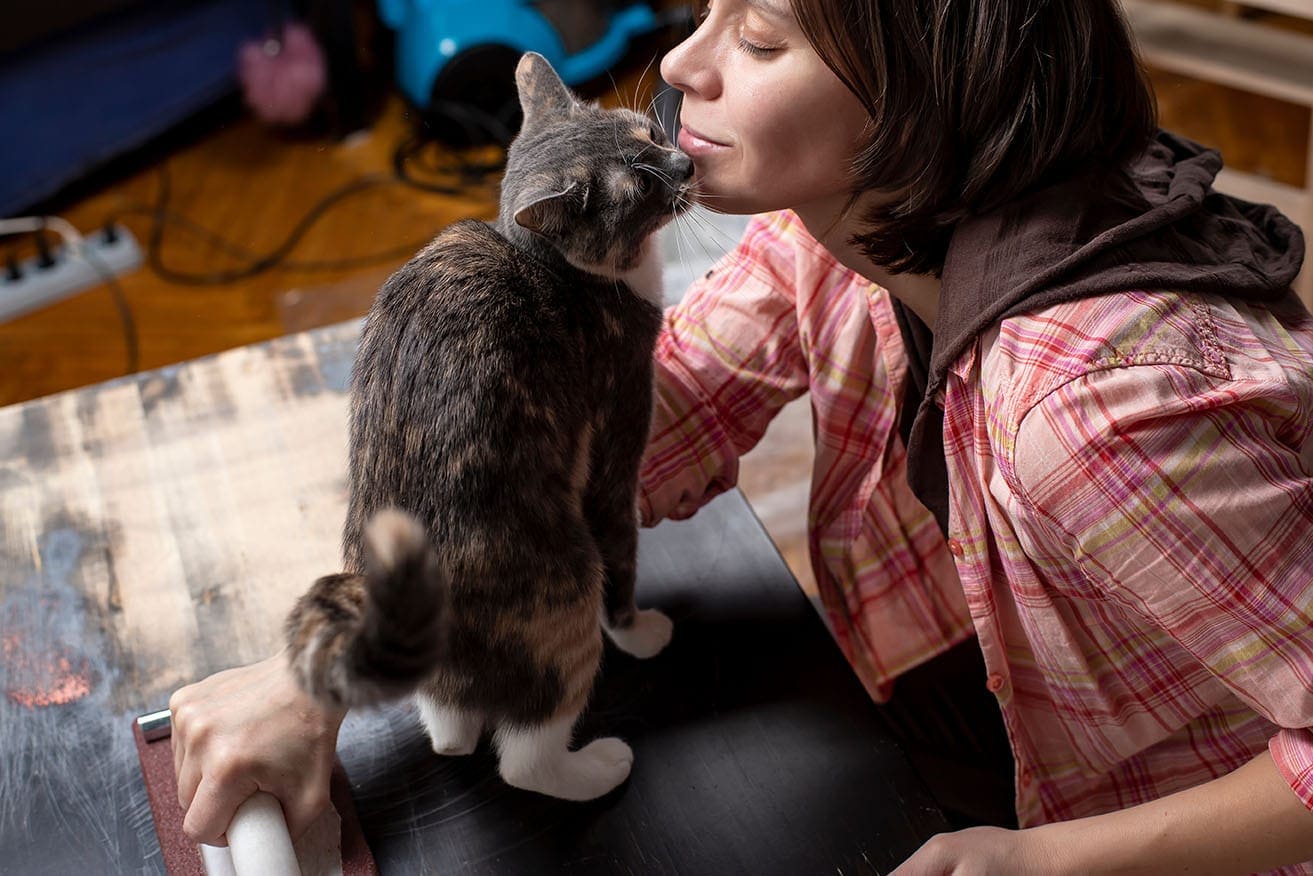Do Cats Eat Squirrels? Potential Health Risks

Updated on

Most indoor cats are accustomed to their owners providing nutritious meals, but domestication has not altered felines’ instinctual need to hunt. Your cat’s ancestors relied on wild animals to survive, and if given a chance, your pet may decide to prowl around your backyard looking for prey. When you’ve watched wild creatures forage on your property, you may have wondered, do cats eat squirrels? Yes, cats can eat squirrels, but they’re more likely to chase mice since they’re smaller and less acrobatic.
If you have an outdoor cat that’s an experienced hunter, your pet has a better chance of killing a squirrel than an inexperienced indoor cat or feral kitten. Squirrels are intelligent animals that can easily outmaneuver an amateur, and they’re more skilled at escaping predators than other rodents. However, their big, fluffy tails are tempting targets for clever felines. If a cat catches a squirrel, the squirrel is unlikely to survive the ordeal.
Do Cats Eat the Entire Squirrel?
Although feral cats can devour the entire squirrel after a hunt, pet felines are more likely to kill the squirrel and drag it onto your doorstep. Squirrel meat and squirrel by-products are high in protein, moisture, and essential nutrients, but your cat will not consume the animal if its stomach is full of kibble or wet food. If your cat kills a squirrel and eats the bones, organs, meat, and blood vessels, you may need to modify the cat’s diet.
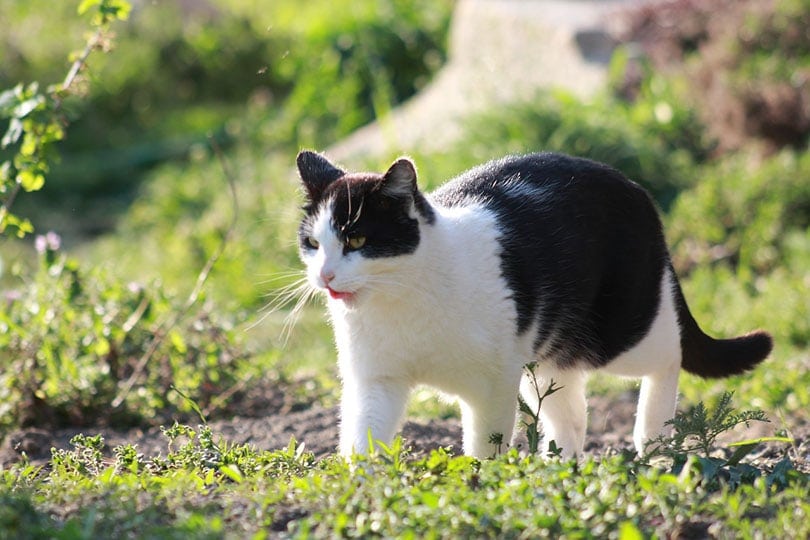
The 3 Risks of Eating Squirrels and Other Wildlife
Whether they’re planning on taking a bite or merely killing their prey, cats love to hunt. You’ve probably watched your cat chase a catnip mouse or try to trick a paper ball with a quick maneuver. Playing games and allowing your cat to bring out their hunting skills are healthy activities that provide vital exercise and mental stimulation. In a hypothetical world where all disease is nonexistent, your cat could hunt and dine on squirrels every day, but unfortunately, squirrels are not always safe for your pet to eat.
1. Injuries
Squirrels are armed with sharp claws and strong teeth, and they’ll fight for their lives when attacked by a cat. Experienced hunters can subdue squirrels, but a house cat that catches a squirrel in the yard may not know how to work quickly. Cats hone their hunting skills by trial and error, and they become more accurate when they’ve hunted several times. If your cat is an amateur hunter, it risks being scratched or bitten by an angry squirrel.
Squirrels are also risky meals because they can accidentally consume poison intended for mice or rats. A poisoned or wounded squirrel is not a challenge for a pet cat. If the feline eats even part of the animal, the cat can become severely ill and require a trip to the animal hospital.
Wild cats can eat a squirrel’s bones, meat, and flesh without issues, but a domesticated cat raised on pet food is less skilled at consuming bones safely. A pet cat can choke on a small bone or ingest a small fragment that becomes lodged in its intestinal tract. An intestinal obstruction requires immediate surgery that can be risky and expensive.
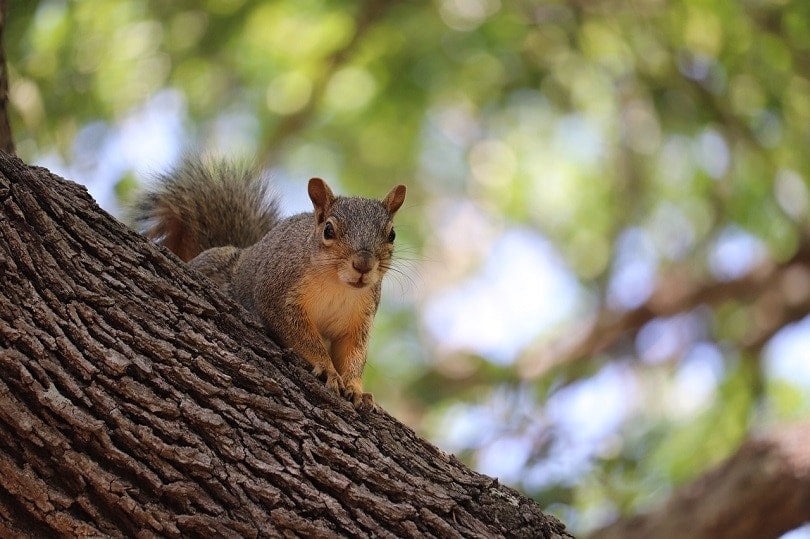
2. Disease
Squirrels are cute, energetic creatures that entertain us with amazing agility, but their appearance contrasts with the hazardous organisms crawling on their fur and living in their guts. Some of the diseases that squirrels can transmit to your cat and possibly your family include:
- Rabies
- Leptospirosis
- Tularemia
- Salmonellosis
- Lyme disease
- Plague
Keeping your cat vaccinated and up to date on flea and tick medication will reduce the chances of your pet contracting rabies, plague, or Lyme disease. Rabies vaccinations are effective against the disease, and monthly flea and tick pills can keep a diseased tick or flea from biting your pet. However, tularemia can be spread by fleas, ticks, and inflected animals which means that your cat could avoid the disease from a flea but not from an infected squirrel bite.
3. Parasites
Like feral dogs and cats, squirrels can host a wide range of intestinal parasites. Your cat can contract tapeworms after eating infected fleas from a squirrel or roundworms from consuming a dead squirrel, but fewer cat owners are aware of the danger of toxoplasmosis. It’s caused by the Toxoplasma gondii parasite and can be transmitted to humans by exposure to infected cat feces.
After eating a contaminated squirrel, your cat can deposit the parasite in its litter box. Healthy humans are not as vulnerable to the parasite and can develop a lifelong immunity to the parasite after becoming infected, but people with compromised immune systems can experience severe medical conditions such as hearing loss, eye infections, blindness, encephalitis, and seizures. The gondii parasite is prevalent around the world, but you can keep your family protected from the disease by keeping your cat indoors and preventing your pets from eating wild animals.
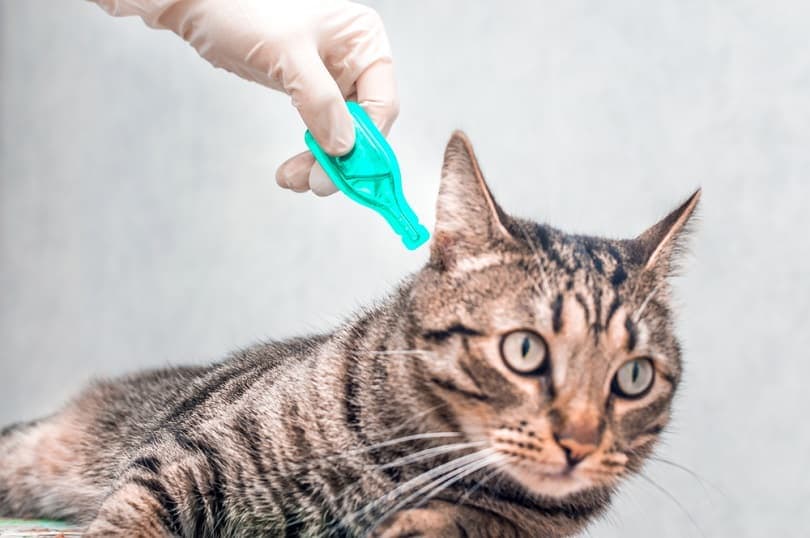
How to Prevent Your Cat from Eating Squirrels
Most pet cats will not outwit a healthy squirrel, but an infant or wounded squirrel is easy prey for your pet. The only foolproof method to keep your pet from hunting outdoors is to confine your feline inside your home. Your pet may be upset if it’s used to spending the day outside, but it will secretly thank you for protecting it from rabies, parasites, and other nasty diseases. Although you should prevent your cat from catching squirrels, you do not have to suppress its urge to hunt.
Indoor Games
Outside cats enjoy more opportunities for exercise than house cats, but you can keep your pet fit and entertain it with indoor games. Wand toys are excellent tools for simulating hunting, and they’re more affordable than most cat toys. However, some are not very durable, and you have to replace them when they become damaged.
Another inexpensive option is a laser toy. Some cats will go wild when they’re chasing the red dot around the living room, and the devices are ideal for lazy humans who like to participate in cat games from the comfort of the couch. Whether you use a toy or a ball of paper, try to fit in at least two play sessions every day that last 20 to 30 minutes.
Pet Companions
Another cat or puppy will not curb your feline’s desire to hunt, but a new pet can occupy your cat and minimize its pleas to go outdoors. Some cats will not respond well to a new friend at first, but eventually, they’ll enjoy chasing another pet around your house and testing out their prowling skills. If you’re concerned about how your cat will react to a new companion, speak to your vet for tips on making the process less stressful for your feline.

Premium Food
A well-fed kitty is unlikely to crave squirrel meat, and you can keep your pet healthy with high-protein, nutritious cat food. Although cats are technically considered omnivores, most of their diet should come from meat proteins. You can find several wet and dry meals available in stores and online, but you also have the option of using a subscription service. You can set up your pet’s nutritional profile online and receive monthly packages of healthy meals.
Some subscription services offer cooked meals, but you can try a raw food company like Smalls that simulates the carnivorous diet of wild cats with human-grade raw meals and freeze-dried products. If your cat has eaten wild animals before, a raw diet can help satisfy its urge for wild meat.
Final Thoughts
Cats enjoy stalking their prey and preparing for an attack, but squirrels and other wildlife should not be on your pet’s menu. Squirrels can bite or scratch your pet and transmit dangerous infections or diseases, and they can also transfer fleas, ticks, and parasites to your furball. Keeping your feline inside, providing a healthy diet, and engaging with your cat in spirited games are excellent alternatives to allowing your friend to hunt squirrels.
Featured Image Credit: Piqsels


